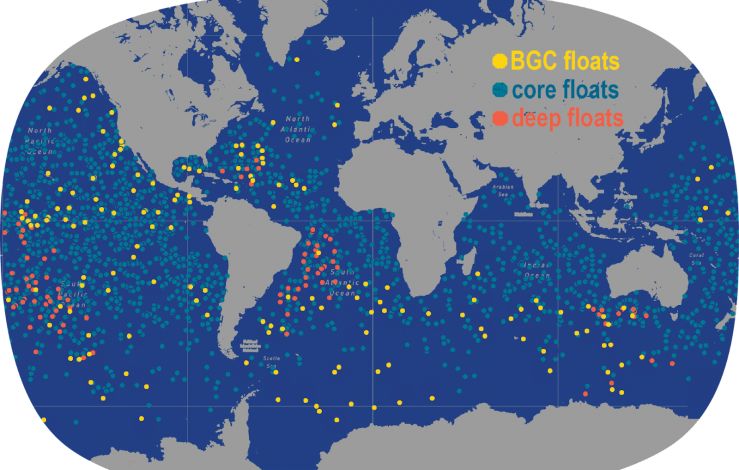
The Argo Program was developed in 1999 and today supports a global array of almost 4,000 robotic profiling floats that measure the temperature and salinity of the upper 2,000 meters (1.2 miles) of the ocean. Argo floats are now being tested to dive down to a depth of 6,000 meters (3.7 miles) and have additional sensors on them to collect information about the biology and the chemistry (oxygen, pH, nitrate, suspended particles, and downwelling irradiance) of the global ocean. Credit: Nina Buzby (University of Washington)
PMEL’s Global Observations of Biogeochemistry and Ocean Physics research group is looking for high school teachers and classrooms in the greater Puget Sound region to join our new outreach program, Adopt-A-Float. PMEL researchers are using autonomous robots called Argo profiling floats that measure physical, chemical, and biological variables in the ocean to understand the impacts of climate and ecosystem changes.
PMEL deploys about 60 floats each year and classrooms can engage with a dedicated float as it collects crucial data across the ocean.
Each classroom involved in the PMEL Adopt-A-Float Program will get to adopt a float that is about to be deployed in the ocean. Classes will get to:
- Name the float
- Create an associated image or logo to be placed on the float prior to deployment
- Learn how to view the float data online
- Develop hypotheses on what that float might “see” once deployed
- Have in-person or virtual classroom visits with scientists
- Access teaching/demo materials, including lesson plans on how to view and download data from your adopted float
- Tour PMEL
To get started or learn more about the Adopt A Float outreach program, contact the team via email at adopt.a.float@noaa.gov


